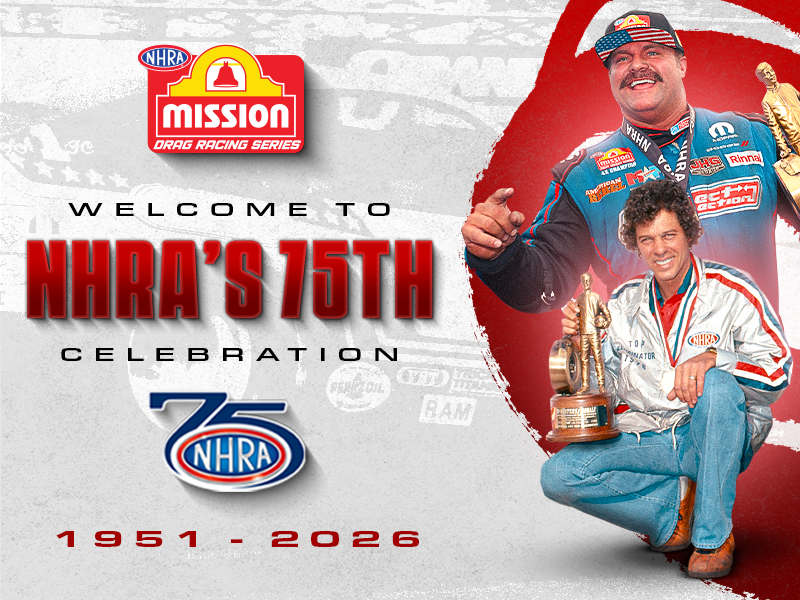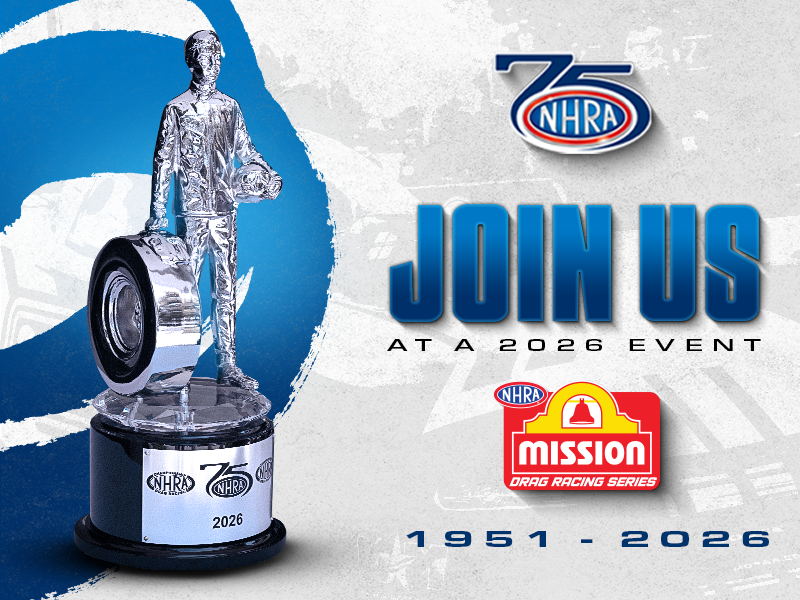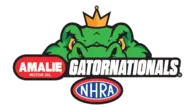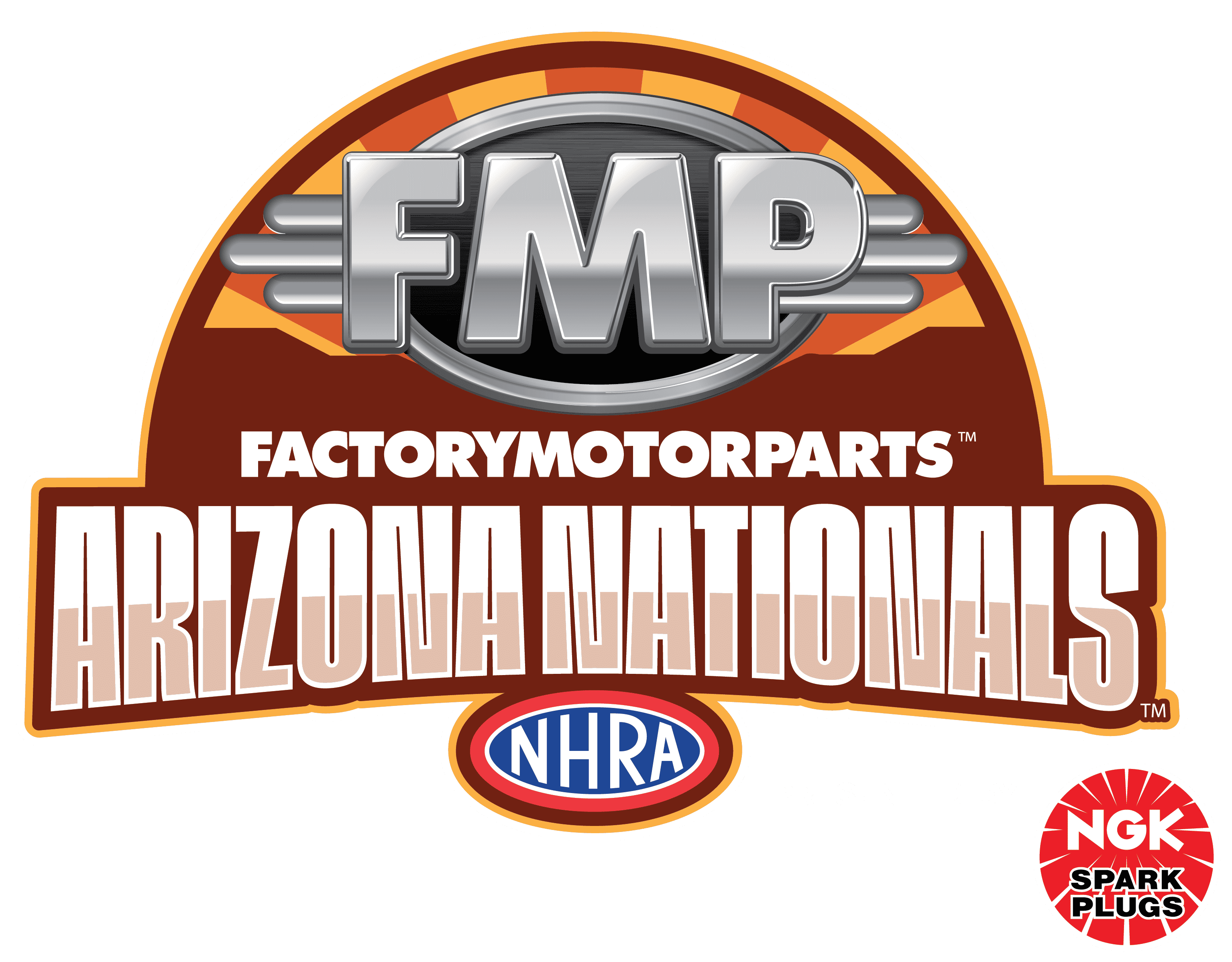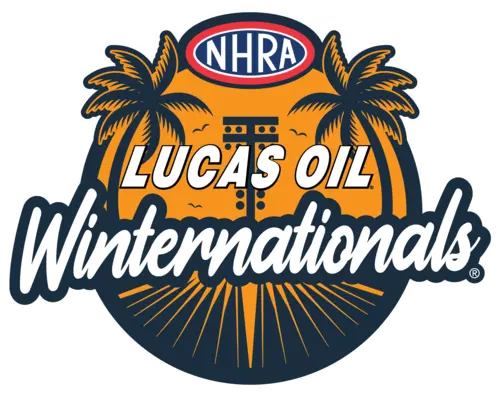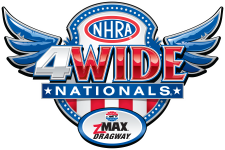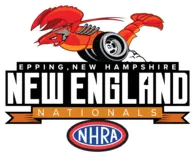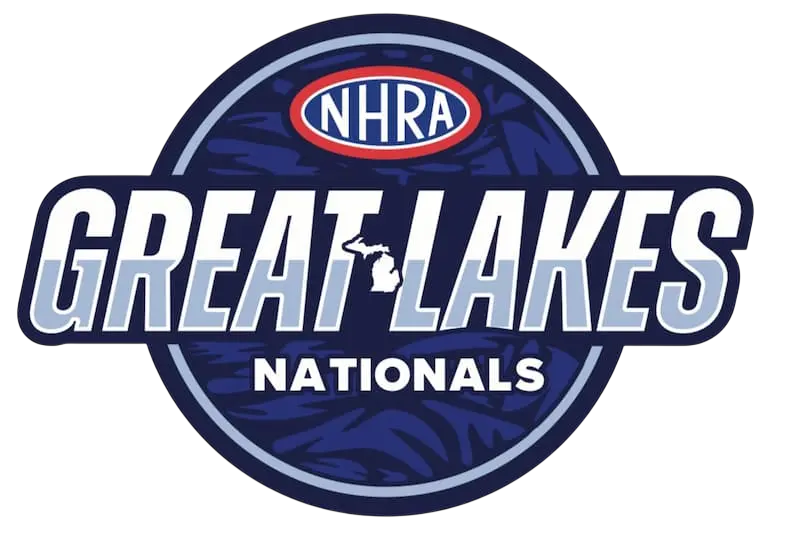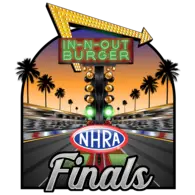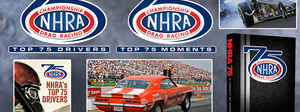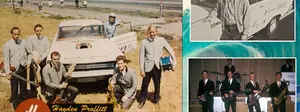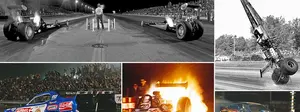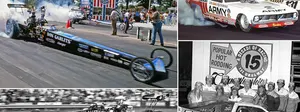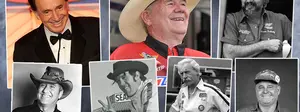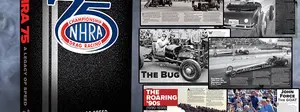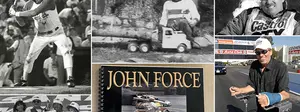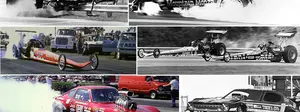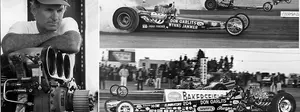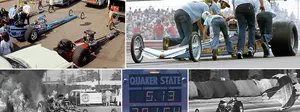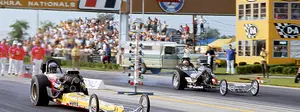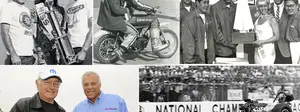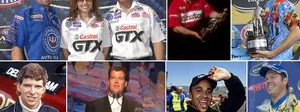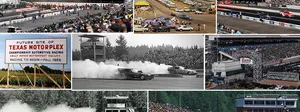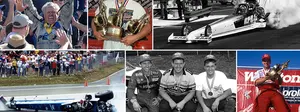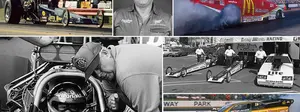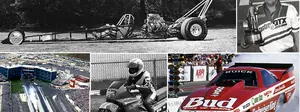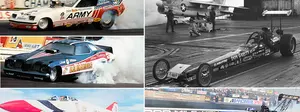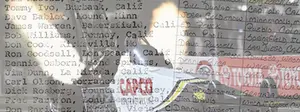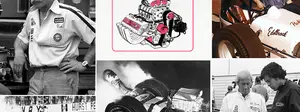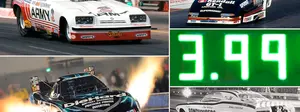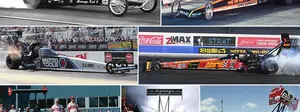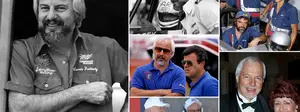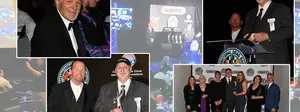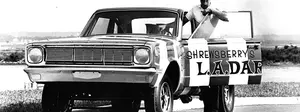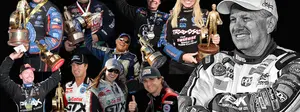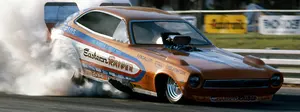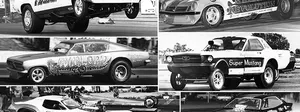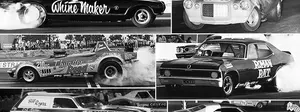Remembering Jody Smart

In my long-term residency here, I’ve met thousands of racers. Almost all of them are amazing people and fierce competitors, but there is a smaller number of folks who stood out for not just being great racers, but great human beings, too. We lost one of them, former Texas Top Fuel racer Jody Smart, on Sept. 22 at age 79, and with the Texas NHRA FallNationals next up on the national event schedule, it seems the perfect time to remember him.
Smart’s career was not long — spanning about six years, from 1980 into part of 1986 — but he made an indelible impression not just on the record books, but in the hearts of fans and fellow racers. He was among the most gentlemanly racers I’ve met and, in talks both formal and informative had with people about him, he was that proverbial guy about whom they never heard a bad word said.
What’s especially cool about Smart is that he pretty much leaped headfirst into Top Fuel with virtually no nitro experience. He had raced an injected dragster for a few years and had bracket-raced his family’s ’56 Chevy as a teenager.
“Top Fuel racing was something I had always been curious about, and I built up a desire after very little drive time," Smart told NHRA National Dragster back in a 1996 interview. “In about 1968, I drove one at a race for a San Antonio car owner named R.C. Woltersdorf and was very fortunate to take runner-up that day at Double Eagle Dragway in San Antonio. I had absolutely no experience going into that race. A few years later, I put together a big-block Chevy Jr. Fuel dragster and raced that four or five times. That was it until l bought the Top Fuel dragster."

Smart’s first venture into the big time was at the 1980 AHRA Grand American at Tulsa Int'l Raceway. He showed up with a new Tony Casarez-chassised dragster (the only Top Fueler he would ever race in) and a fresh Keith Black bullet, but the biggest weapon in his arsenal was his tuner, J.E. (Jerome) Kristek, who physiologically was just a few years older than Smart but decades smarter in mechanical ability. Kristek had been part of the CKC team (with Fritz and Carl Callier) that was a powerhouse in Division 4 in the late 1960s and early 1970s.

When Smart first started racing Top Fuel, there was still some room for the small teams, and Smart and his boys made the most of it. Most of the time it was just Smart, Kristek, and right-hand man Ralph Garcia.
Incredibly, Smart reached the semifinals in that first race, losing to Shirley Muldowney. A few weeks later, at the AHRA Gateway Nationals in St. Louis, Smart runner-upped to "Big Daddy" Don Garlits. The next week, he qualified on the bubble at his first NHRA race, the 1980 Springnationals in Columbus, but he lost in round one to Bob Noice.
Over the next four years, the team honed their skills and focused on their strength, which was consistently getting the car down the dragstrip.
"J.E. was the biggest reason I did so well that year,” Smart said. “The car always ran from point A to point B on eight cylinders. We didn’t win every race, but you couldn't take it easy against us because our car would be running the full quarter under full power."
In 1981, in Smart's first full year on the NHRA tour, he reached his first final round, falling to Muldowney at the NHRA Gatornationals, 5.81 to 5.89, and, thanks to a series of solid outings, finished a remarkable sixth in the points standings.

After a ninth-place finish in 1982 in which he didn’t reach any final rounds, the 1983 season was a career-making year. He opened the season with a runner-up – again to Muldowney – at the NHRA Winternationals, then, four races later, went to three straight final rounds. He lost in the final rounds in Montreal and Englishtown to Joe Amato, then scored his first (and only) NHRA national event win in Denver, where he defeated Danny Danell in the final.
"The 1983 season was probably my best and certainly my most disappointing," Smart said. "I think we set top speed at seven out of 12 NHRA races, won the Mile-High Nationals, and was in second place almost all year behind Gary Beck, who was having a career season.

"We got down to the Winston Finals in second place, and everything went wrong there. We did nothing but shake the tires and wound up losing in round one. Then, to make matters worse, Joe Amato made it to the final, exactly what he had to do to earn second and put us in third."
The 1983 season also was especially memorable to stats keepers as Smart ran an astounding 257.87 mph at an IHRA race that stood as the year’s best run. Tied with a similar pass by (who else?) Muldowney. That speed wasn't eclipsed until Amato ran the sport's first 260 the following March at the NHRA Gatornationals.

With Top Fuel’s future teetering on the ropes, Smart switched to Funny Car in 1984 and 1985 with a Trans Am-bodied car also out of Casarez’s shop. Although he ran a best of 5.68, he didn’t have a lot of success and ran a limited schedule, then had a brief return to Top Fuel in John Carey’s dragster in 1986 before hanging up his driving gloves due to the rising cost of racing.
"I’d always loved racing, and it was not pleasant to have to get out," said Smart. "However, the reality that was there when I got into the sport was still there when I got out: You either had the budget or you don't. I wanted my effort to be first-cabin all the way, and if I couldn't do it that way, I didn't want to do it."

"I look back on my drag racing days positively," he said. "I loved the sport; the competition was fantastic. I also enjoyed traveling all over the country and making a lot of great friends. Considering that we ran the car on a budget, I thought that we did really well.
"Quitting was the hardest thing I ever had to do, but it was the right thing. l suppose in an odd way that it was like quitting anything addictive."
![]()
As I mentioned early on, Smart was a true gentleman racer. I was fortunate enough to interview him on multiple occasions while covering races for National Dragster in the early 1980s, and it never seemed to matter whether he’d set top speed or blown up an engine, he was always receptive and eager to talk. I don’t know that I ever saw him in a bad mood.

Some Texas fans would argue that point, especially those who were in attendance at the 1981 AHRA Nationals at Alamo Dragway, Smart’s home base.
The Nationals was AHRA’s biggest Grand American race of the season, and the partisan crowd was thrilled to see their hometown boy reach the semifinals to face AHRA king Don Garlits, who had won the last three AHRA championships. Muldowney had already won her semifinal race and awaited the winner.
Then something went horribly wrong on the starting line as the Christmas Tree ended up with a full Tree instead of a Pro Tree, and Smart, naturally, left on the first yellow — not knowing others would follow — and red-lighted.
All manner of accusation was thrown around, about how AHRA President Jim Tice wanted his man — Garlits — in the final against Shirley, and that somehow the fix was on. Smart demanded a rerun but was denied. It didn’t help that when Smart confronted Tice behind the tower he was standing with Garlits.
Smart was so enraged that he walked out on the starting line and kicked the Christmas Tree over. The huge crowd — irate because either a) their hometown boy was being railroaded or b) because Smart had just ensured a long delay, started throwing beer cans from the stands and, reportedly, Don Prudhomme’s crew – among many who had come to the starting line to watch Smart’s Tree chopping — starting throwing them back, according to an Associated Press report.
The final round was delayed many hours, and Muldowney ultimately beat Garlits and ended up breaking Garlits’ stranglehold on the championship that year. It was the only year from 1978-84 that Garlits did not win the AHRA championship.
You can read Muldowney’s version of the incident here.
I had the pleasure of talking to a couple of people close to Smart from outside my racing circle, and, after each person I talked to, they recommended someone else who also could provide some color. Seems like that could have gone on forever and I’d still be talking to people who loved and admired him.
The first person I talked to was the first person to tell me about Smart’s passing. Childhood friend Nick Koudelka, who was one of Smart’s lifelong friends.
“When I was 11 years old, my parents bought a house in San Antonio on the same street that Jody lived on,” he remembered. “He just lived about 10 or so houses down from where my mom and dad bought a house.
"We were sixth graders back then, and we hung out up through high school. It was a good life. I mean, we started out, you know, riding bicycles together in junior high school and then went racing.
“For many years, Jody raced a ‘56 Chevrolet Bel Air two-door hardtop that his mom made the mistake of buying. Next thing you know, Jody went to California with a friend of his and came back with a Hurst shifter. He had had J.E. take out the Powerglide and put in a standard transmission.
“We used to go hang out when J.E.’s dad had a garage over on South Hackberry here in San Antonio. J.E was that black '57 Chevrolet, and we’d always go there to get mechanical work done. Anything that ran on gasoline J.E. could work on it.
“In the late '50s and early '60s, we’d all go over to our unofficial dragstrip, which was a road southeast of San Antonio that ran to this company that was called United Gas, and we had a quarter-mile drive marked off on this two-lane road.
“I also went racing with Jody when he had his little injected dragster. We’d haul that car to Austin or Green Valley [Race City] outside of Fort Worth, pulling it on an open trailer behind a Chevy station wagon. It was hard to drive with the trailer flying all over the road, man, swinging back and forth.
“I got married in 1969, and after that, I was always a spectator racing kind of guy. Jody was my best man when I got married, and when Jody got married in the early 1980s, I was his best man. I worked for his business from 1979 to ‘86 when he had Southwest Racing Equipment, a small performance-oriented business and truck accessories. I left [San Antonio] and taught school after that for 21 years, but we still stayed close. It was a long, long friendship with many memories down the road.
“We did a lot of bowling back in the mid-’60s, sometimes two to three nights a week, and if we weren't bowling, we were drinking beer, chasing women, or doing something. Good times. We all averaged between 175 to 185, and back then, there were very few over 200 average bowlers, and was not as technical as it is today. Guys today own dozens of balls for different conditions; back then you had one ball, and if you didn't like it, you threw it away or gave it away. I remember one time we went to bowl in a state tournament in Corpus Christi down on the Gulf [of Mexico], and we didn't do very well. So, we all rolled our bowling balls off the end of the pier into the Gulf.
“I don't ever remember anyone — whether in his business relationships or in his personal relationships — who ever had an unkind word about him. He was always available and just a fun guy.”

Before we hung up, her husband, Koudelka, encouraged me to call Kathy Gulley, who also had worked at Smart’s business alongside her husband, Ron, and she did not disappoint.
“I worked for Jody for 14 years, but we were very, very close personal friends outside of work,” she said. "He was just a great guy, all around, but as far as work was concerned, he always gave those who worked for him credit for the success, so we felt like we had a family at his business, too.
“The other day I was talking to one of the guys that worked for Jody for 11 years, and he told me that he came to work there in November, so he'd only been there maybe six or eight weeks, and Jody made a phone call to his mother to find out what he might need or want, which turned out to be new bowling shoes, so Jody made that happen and gave the guy a Christmas bonus even though he'd only been with the company for like six weeks. That was the kind of person he was; he was just very, very generous.”

And, as it turns out, very forgiving.
“In 1980, Jody invited me and my husband to stay at his lake house one Christmas," she recalled painfully. “We used to go there all the time in the summer, skiing and having fun, but we’d never been there in the winter. We went to the bedroom where we normally stayed, and it was an older house with electric wall heaters. Well, my husband hung some clothes on the door of the closet too close to the heater, and the house caught fire. That was one of the hardest phone calls I have ever made in my life, to call one of my dearest friends and let him know that his house burned down and that we had done it. He never, ever missed a beat with us. It was just like it never happened. That is just the kind of person he was. He was a good man who shared generously all the time. When the Spurs first came to San Antonio as an ABA team, he bought eight season tickets, and those seats were filled every home game because he would take friends and guys that would come to town to call on his business.
“The world needs more people like him.”

And before Kathy hung up with me, she gave me the number I’d most been searching for, Smart’s son, Grant, one of two twin boys (Logan is the other) that Smart had. Not unexpectedly, I was one of many people calling Grant to share memories of his dad.
“It always makes you feel good knowing that he left a mark on people and a positive one at that,” he said, “but he certainly cared about all you guys just as much. It was his racing family, a second family.”
Grant and Logan are now both 35 and born just after he quit racing and, remarkably, did not grow up knowing their father was a successful drag racer.
“You're gonna laugh at this, but I didn't know that he raced the Top Fuel car until I was about 10 years old when he got us into Jr. Drag Racing,” he said. “I had no idea. He was pretty humble. He didn't brag much about anything. It wasn’t until we went over to [Kristek's] shop to have him help with something on the Jr. Dragsters and one of the guys there said something like, ‘Well, here he goes, step one of you becoming a professional, just like your father.' I looked at him like he was crazy. ‘What are we talking about?’ We grew up watching the races every single week on TV, so that was the ritual — and if we weren't at the races watching them in person, we would watch him on TV — so that’s how I got to know that he loved drag racing, but he kind of blew me away that he had this whole racing career we knew nothing about. It's as wild as it sounds.
“He later told us of the wild stories, the people that he met along the way, and all the minutia in-between that’s rather benign, but what he liked the most were you and your colleagues and his fellow racers. He was just truly passionate about it.”
We did talk about the infamous Alamo Dragway Christmas Tree demolition.
“He thought something fishy was gonna happen when he pulled up to the line, and, of course, he was hot as can be – ‘You embarrassed me in front of my hometown people’ – and just lost his cool and walked up to the starting line and walked up to the Tree and just kicked the thing in half,” he explained. “He always seemed slightly ashamed by that afterward.”

As mentioned previously, Smart got both Brant and Logan started in Jr. Dragsters, and they did quite well, with Grant even winning a Division 4 championship in the late 1990s. At first, they shared a car but eventually got one each, purchased from none other than Erica and Courtney Enders.
“We did pretty solid over the years,” he remembered. “We’d race at our home track more than anything, but we'd get around and do some of the divisional races and had fun doing it.

“He took it pretty seriously, with our weather station and logbooks galore of any weather metric he could possibly imagine and entering this stuff into the computer to try to get some sort of a logarithm going where it would predict our runs. But we had a great time and, as he did, we found a whole second family there in the racing world.
“Since his passing, all sorts of people have called – people that I know, people that I don't know, his racing buddies, and a lot of his old friends. There’s been lots of condolences and a whole lot of your ‘your dad was the nicest guy that I've ever met,’ which makes you feel really good.”

Jody Smart was truly a king among gentlemen racers, and he won’t soon be forgotten by anyone so fortunate to have crossed his path.
Phil Burgess can be reached at pburgess@nhra.com
Hundreds of more articles like this can be found in the DRAGSTER INSIDER COLUMN ARCHIVE
Or try the Random Dragster Insider story generator



